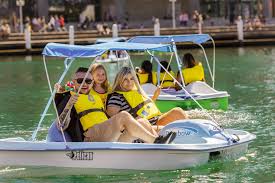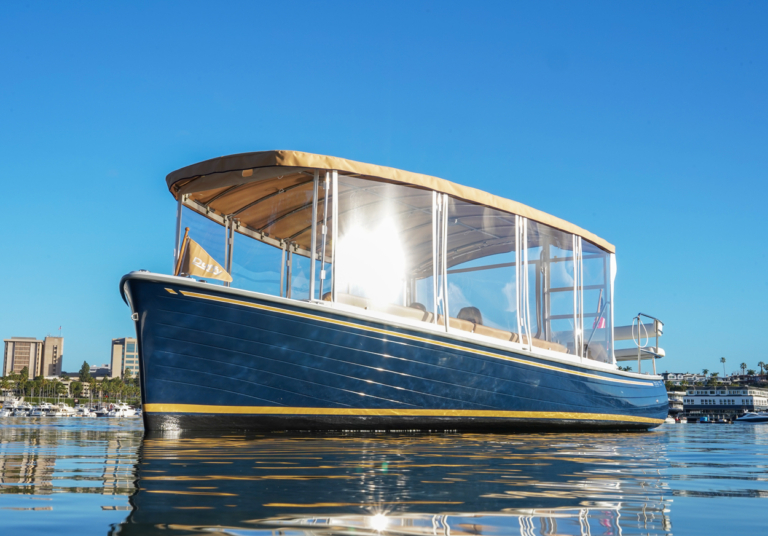The Following Are Examples of Reckless Operation Except: Common Misconceptions Debunked
Reckless operation in the context of boating and personal watercraft (PWC) use is a significant concern when it comes to ensuring the safety of operators, passengers, and others on the water.
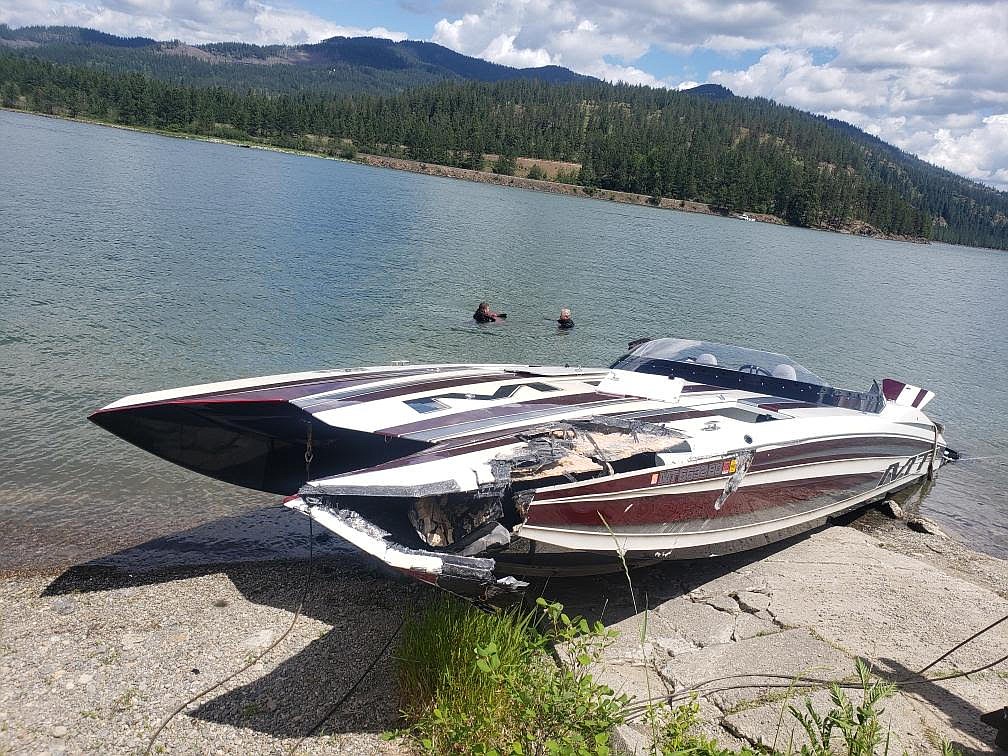
Defined as operating a vessel in a manner that causes danger to life, limb, or property, reckless operation encompasses a range of behaviors that can lead to accidents and severe consequences under the law. States like Florida have specific guidelines outlining the actions that constitute reckless operation to help maintain a safe environment for all watercraft users.
Understanding the definition of reckless operation is essential, but so is knowing the exclusions to the rule.

Not all potentially hazardous or dangerous situations fall under the designation of reckless operation. By familiarizing ourselves with the specific actions deemed reckless and the factors that influence them, we can take preventive measures and follow safe operation guidelines to minimize the risk of accidents and consequences.
Key Takeaways
- Reckless operation involves dangerous behaviors with vessels and PWCs that endanger lives, property, or the environment.
- Certain situations, like operating a PWC in the rain, may not be considered reckless operation under the law.
- Recognizing which actions are deemed reckless and adhering to safe operation guidelines helps reduce the risk of accidents and legal consequences.
Definition of Reckless Operation
Legal Context
Reckless operation refers to the act of operating a vessel, vehicle, or any other equipment in a manner that demonstrates a willful or wanton disregard for the safety of persons or property. It is a criminal offense and punishable by law.
In the context of boating, this can occur when a person operates a watercraft in a way that puts the safety of others at risk. For instance, Florida law prohibits reckless operation of a vessel and considers it a misdemeanor of the first degree.
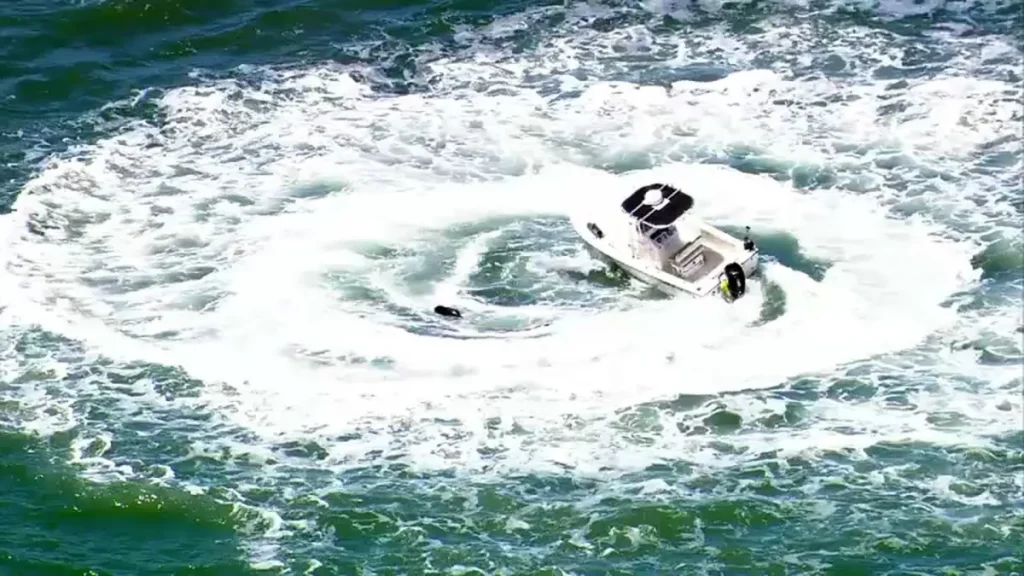
Prudent Operation Standards
To promote safety and avoid reckless operation, boating enthusiasts should strive for prudent operation standards.
This entails following navigation rules and maintaining a safe speed for the conditions - for instance: weather, size of watercraft, and water traffic.
It also includes adhering to the principle of care when it comes to the actions performed while operating any vehicle.
Practicing safe operation involves being vigilant, responsible, and adhering to regulations.
A key aspect of prudent operation is being aware of the surrounding environment and using best judgment to avoid dangerous situations.
It comprises proper use of the vessel's equipment and being prepared to take necessary actions to prevent accidents.
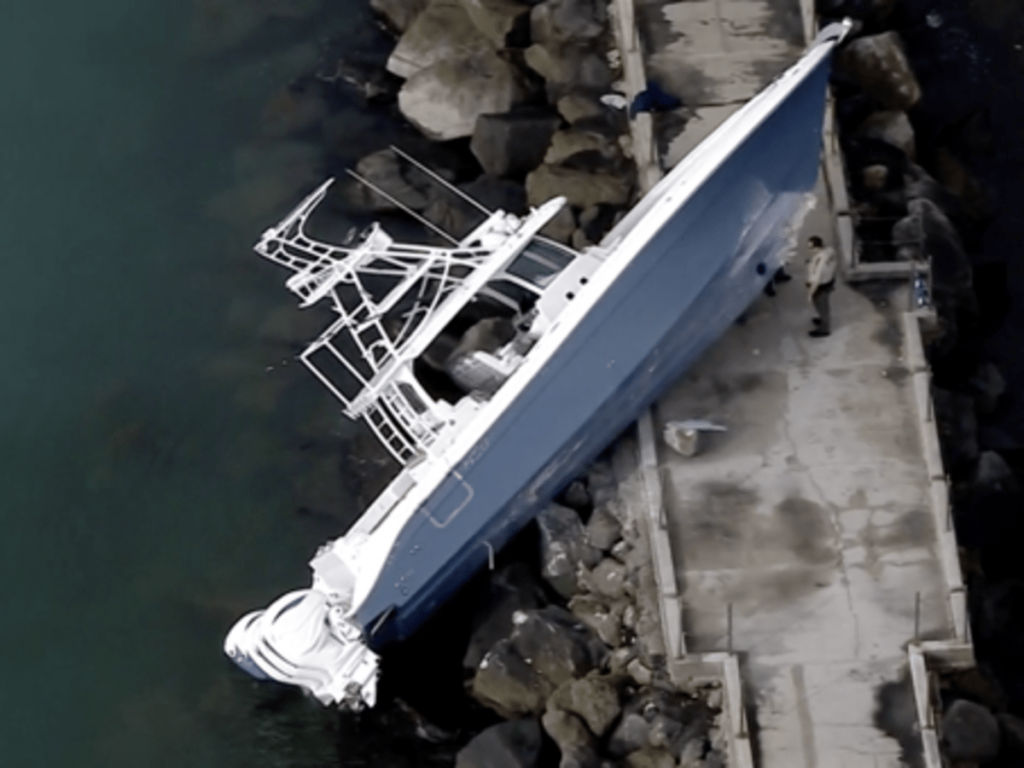
Additionally, adhering to these standards entails avoiding any actions that may be considered reckless, such as operating under the influence of drugs or alcohol, speeding, or deliberately violating navigational rules.
Operating a personal watercraft (PWC) in a prudent manner means riding at reasonable speeds, keeping a safe distance from swimmers, structures, and other vessels while also abiding by local regulations.
Examples of careless actions include aggressively weaving through other water traffic or performing tricks and stunts that jeopardize safety.
Exclusions to Reckless Operation
Regular Navigation Practices
When it comes to reckless operation, there are certain regular navigation practices that are exempt.
For example, operating a personal watercraft in the rain is not considered reckless operation, as weather conditions are not always predictable and do not inherently contribute to dangerous behavior (source).
It is important for boaters to follow the established navigation rules, which provide a safer environment for everyone on the water.
Permissible Boat Operation
In order to be considered operating in a reasonable and prudent manner, boaters must consider the safety of others and the rules regulating boat operation.
This includes adhering to speed limits, observing navigation markers, and maintaining a proper lookout (source).
Furthermore, exceptions to reckless operation can be made when:
- Following standard navigation practices
- Adhering to any posted speed limits
- Operating within designated areas
- Observing appropriate right-of-way rules
Not all actions taken at high speeds or in crowded situations are necessarily reckless.
It is crucial for boaters to exercise good judgment and prioritize safety above all else.
Common Reckless Operation Behaviors
Excessive Speeding
Excessive speeding is a major cause of accidents and is considered reckless operation.
Traveling at high speeds on water can lead to a lack of control and difficulty in stopping when necessary, increasing the likelihood of accidents.
Boating at unsafe speeds is especially dangerous in restricted areas where other boats or obstacles are present.
Weaving Through Traffic
Weaving through traffic is another hazardous practice in boating.
This behavior involves abruptly changing course and moving back and forth between other boats, which can catch other boaters off guard.
Such unpredictable movement can lead to collisions and injuries. Boating in a reckless manner puts everyone at risk, as it is difficult for others to anticipate what the weaving boat will do next.
Improper Towing Practices
Engaging in improper towing practices can also be deemed reckless operation.
This includes jumping the wake of another boat within close proximity or towing a person on water skis or other devices without following safety guidelines.
Negligent towing can lead to serious accidents, as the towed individual may be at risk of injury from colliding with a boat or other obstacles in the water.
Operating in Restricted Areas
Boating in restricted areas is another example of reckless operation.
These areas may be marked off due to environmental concerns or to protect the safety of swimmers and other water users.
Disregarding these restrictions and operating a boat in such zones demonstrates a willful disregard for the rights and safety of others and can result in collisions and injuries.
Factors Influencing Reckless Operation
Reckless operation poses significant risks to boaters and others in the vicinity. Several factors can influence this behavior, and understanding these factors can help boaters avoid engaging in reckless operation.
This section will discuss operator impairment, environmental conditions, and vessel overloading as three primary factors that contribute to reckless operation.
Operator Impairment
Operating a vessel under the influence of alcohol or drugs is not only illegal but also highly dangerous.
It impairs a boater's ability to make sound judgments, react quickly, and maintain control of the vessel.
A boat operator who is under the influence may be more likely to engage in reckless behavior, such as speeding, failing to yield, or not maintaining a proper lookout.
It is crucial for boaters to remain sober while operating a vessel to ensure the safety of everyone on board and around them.
Environmental Conditions
Environmental factors can also play a significant role in reckless operation.
Examples include operating a personal watercraft in the rain or navigating in areas with poor visibility or heavy traffic 1.
Other hazardous conditions are shallow water, strong currents, or rapidly changing weather.
These situations call for extra caution and can make even seemingly routine actions highly risky for inexperienced or unprepared operators.
Boaters must stay informed about the local conditions and act accordingly to promote safe navigation for all vessels.
Vessel Overloading
Overloading a vessel with passengers or cargo can compromise its stability, maneuverability, and performance 2. This negatively impacts the operator's ability to maintain control, avoid collisions, and respond to unexpected situations.
An overloaded boat is more susceptible to capsizing, and passengers may be at greater risk of falling overboard. To prevent overloading, operators should familiarize themselves with their vessel's capacity plate, which indicates the maximum weight and passenger load.
Adhering to these limits ensures a safer experience for everyone involved.
Footnotes
- https://brainly.com/question/39305283 ↩
- https://aceboater.com/en-us/reckless-careless-operation-of-vessel ↩
Consequences of Reckless Operation
Legal Repercussions
Reckless operation in the context of boating, involves carelessly operating a vessel or manipulation of water skis, surfboards or similar devices in a manner that causes harm to life, limb or property. In places like Florida, a person convicted of such reckless operation will be charged with a first-degree misdemeanor.
Common examples of reckless operation include boating in a restricted area, failing to follow navigational rules, and operating a personal watercraft in an unsafe manner.
Penalties for reckless operation in Florida include potential fines or even imprisonment. It is crucial that boaters understand and adhere to the local laws when operating their vessels, to ensure the safety of themselves, others, and the environment.
Safety Risks
Operating a watercraft recklessly poses a significant danger to the operator, passengers, and other individuals nearby. Reckless boating can result in collisions, capsizing, and other serious accidents.
Some of the primary risks associated with reckless operation are:
- Loss of life: Reckless operation can lead to fatalities, either on the vessel being operated or on other vessels involved in collisions.
- Property damage: Accidents resulting from reckless operation can cause damage to personal property, other vessels, or the environment.
- Environmental damage: Reckless boating can also lead to environmental hazards, such as fuel spills, waste discharge, and disturbance of wildlife habitats.
In the event of an emergency, reckless operators may struggle to manage the situation effectively, potentially exacerbating the severity of accidents.
Therefore, it is crucial for operators to understand and respect the potential consequences of their actions on the water, both in terms of legal repercussions and the safety risks they pose to themselves, others, and the environment.
Preventive Measures
Boater Education
One of the most effective ways to prevent reckless operation of boats is through proper boater education.
Acquiring a Florida Boater Education Temporary Certificate can significantly help in reducing the risk of accidents on the water. These courses not only teach the safety regulations, but also provide guidance on the responsible operation of boats to ensure the safety of persons and property.
Some key topics covered in boater education courses include:
- Navigation rules and regulations
- Boat handling and maneuvering
- Emergency procedures
- Weather and environmental considerations
Compliance with Safety Regulations
Adhering to safety regulations is crucial in preventing reckless boat operation.
Examples of safe practices include:
- Wearing life jackets
- Avoiding alcohol and drug consumption while operating a vessel
- Respecting speed limits and no-wake zones
- Maintaining a proper lookout and distance from other vessels
Compliance with these safety measures not only lowers the risk of accidents but also alleviates the severity of potential accidents, protecting both passengers and surrounding property.
Regular Vessel Maintenance
Proper vessel maintenance is an essential aspect of ensuring safe boat operation.
Regular maintenance can help identify potential issues before they become significant risks. Here are some of the essential components to maintain:
- Engine and fuel systems
- Electrical systems
- Steering system and controls
- Hull, bilge, and flotation devices
By keeping boats in good working condition, operators can reduce the likelihood of equipment failure or malfunction, thus minimizing the chances of reckless operation due to technical issues.
Safe Operation Guidelines
Observing Distance Regulations
When operating a personal watercraft or any other kind of vessel, it is essential to maintain a safe distance from other vessels and objects on the water.
A general rule is to keep at least 100 feet away from other boats, swimmers, or structures, such as docks or moorings.
This distance helps ensure both the safety of persons aboard your vessel and those on other watercraft. For activities such as fishing or waterskiing, aim for even greater distances to protect everyone involved.
Right of Way Adherence
Understanding and adhering to the right of way is critical for preventing collisions on the water.
Make sure you know when it is your turn to yield or proceed, especially in situations where more than two vessels are involved.
Just as on land, watercraft operators must respect the rights of others and follow established navigation rules.
It is recommended to review state-specific guidelines before heading out on the water to ensure both your safety and the safety of those around you.
Passenger Safety
One of the most important aspects of safe operation is ensuring the well-being of all passengers aboard your vessel. This includes practices like:
- Avoiding reckless behavior: Refrain from actions like riding on the bow, gunwale, or transom of a boat while it is underway, as these can pose serious risks to passengers.
- Proper seating: Make sure all passengers have adequate seating and are not hanging off the sides or roof of the vessel.
- Life jackets: Ensure that every passenger has a life jacket that fits them, and encourage them to wear it while on board.
- Communication: Keep passengers informed of any potential hazards or changes in course, and make sure they understand emergency procedures.
Frequently Asked Questions
What are some actions that qualify as reckless operation of a watercraft?
Reckless operation of a watercraft refers to behaviors that disregard safety guidelines, potentially causing accidents or harm. Examples include jumping a wake with a motorized vessel within 100 feet of another vessel, navigating while intoxicated, riding on the bow or gunwale of a boat while underway, and operating a vessel in prohibited or swim areas.
When operating a PWC, which of the listed behaviors is considered safe and responsible?
Operating a Personal Watercraft (PWC) in the rain is generally considered safe and responsible, as long as it is done with caution and by following proper guidelines. A PWC operator should avoid engaging in other risky behaviors during rain, such as speeding or making sharp turns.
Which behaviors should be avoided to prevent being labeled as a negligent boat operator?
To avoid being labeled as a negligent boat operator, one should avoid riding on the bow, gunwale, or transom of a boat while it is underway, operating a vessel in prohibited or swim areas, and navigating while under the influence of alcohol or drugs.
Additionally, it's crucial to maintain a proper lookout, follow the navigation rules, and maintain a safe speed at all times.
What types of PWC operations would be excluded from the category of reckless boating?
Reckless boating does not encompass all PWC operations. Activities that are conducted responsibly and safely, such as maintaining a proper lookout, following the navigation rules, operating at a safe speed, and respecting others on the water, would be excluded from the category of reckless boating.
In relation to boating etiquette, which of the listed actions is NOT considered courteous?
Operating a PWC in the rain is not inherently discourteous. However, boaters should always be considerate of others when navigating in inclement weather and adjust their behavior accordingly, ensuring they maintain a safe speed, avoid producing excessive wake, and respect other boaters' space.
What is the exception to the rule for reporting a boating accident legally?
The exception to the rule for reporting a boating accident legally depends on the jurisdiction in which the accident occurred.
Generally, reporting requirements vary based on factors such as the amount of property damage, whether injuries or fatalities occurred, or if a vessel was struck in a hit-and-run situation.
Check with your local boating authority to understand the specific reporting requirements for your area.
Charlie is Editor-in-Chief of Sea Magazine
